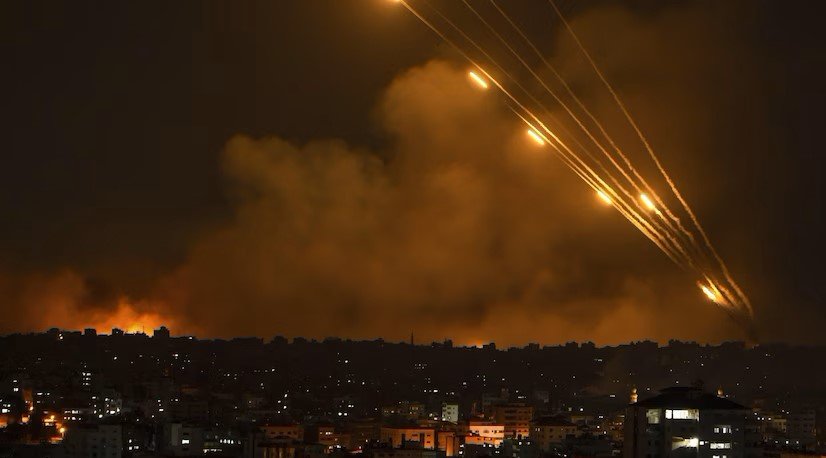The unexpected attack by Hamas on Israel and the subsequent declaration of war by that country have jolted the world economy, which is already in turmoil due to high inflation. The biggest attack on Israeli land in decades occurred on Saturday when Palestinian terrorists launched more than 5,000 rockets at Israel from the Gaza Strip. Killing at least 700 people and injuring hundreds more. Israel-Palestine War: Impact on Indian Stock Market and Inflation
Israel formally declared war in reprisal and authorized “significant military steps” as the military annihilated Hamas fighters still present in southern cities and stepped up its assault on the Gaza Strip.
As the conflict began its third day, the death toll had reached 1,100 and many more were injured on both sides. The effects of the Israel-Hamas conflict on the world economy may not be immediately apparent. But they would worsen if the conflict spread to other countries in the Middle East. Particularly Iran, which is a major oil exporter and a Hamas supporter.
Let’s examine the effects of the Israel-Hamas conflict on the world economy and markets:
Boiling oil prices Due to Israel-Palestine War
Almost a third of the world’s oil supply is produced in the Middle East, where tensions on Monday rapidly increased. While US West Texas Intermediate crude increased 3.85% to $85.98 per barrel, Brent crude increased 3.44% to $87.49 per barrel.
However, unless the issue expands to other nations in the area and becomes a more serious proxy conflict involving the US and Iran. It is unlikely to pose any significant immediate danger to the oil supply.
Iran is reportedly participating in the assaults on Israel, but analysts warned that any reprisal against Tehran may jeopardise the passage of ships through the Strait of Hormuz, a crucial passageway that Iran has repeatedly threatened to restrict.
Inflation

The potential of significant inflation is once again present as the price of crude oil rises. Oil is a key import for the United States, India, China, and other major economies, and if oil prices continue high. These countries may experience high levels of imported inflation. When oil prices rise, other sectors’ production costs. As well as the cost of energy for companies and families also rise, which raises inflation.
The attempts of central banks to manage inflation might be hampered by high energy costs and new inflationary trends. As a result, interest rates may remain high for an extended length of time.
The forecast for global economic growth has been dimmed by worries about rising interest rates. Investors’ hopes that interest rate rises have peaked and central banks may start considering rate reduction have been dashed by the US Fed’s unambiguous indication. That one more rate hike is planned and that rates can remain high for a longer term.
Impact on Israel-India Trade Due to Israel-Palestine War

India’s trade with Israel is not currently being impacted by the West Asia conflict. However, analysts warned that if the dispute worsens, it would lead to supply-side issues. India exports 1.8% of its total merchandise to Israel, with petroleum products being the main export. The country sells Israel refined petroleum products for between $5.5 and $6 billion. India exported $8.4 billion worth of goods to Israel overall in FY23.
However, India also imports from Israel industrial equipment, pearls, diamonds, and other valuable and semi-precious stones. India imported $2.3 billion from Israel in FY23.













Be First to Comment